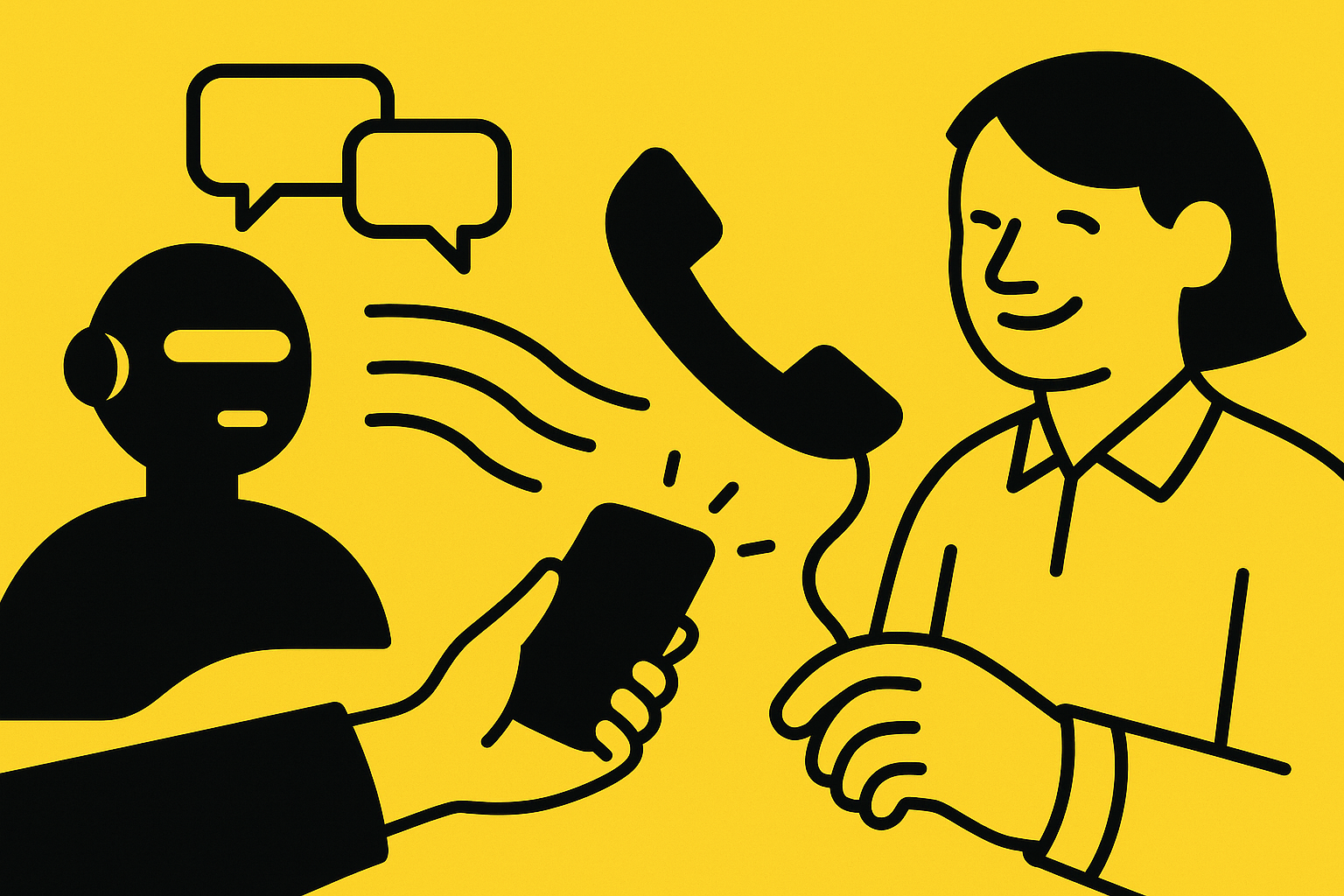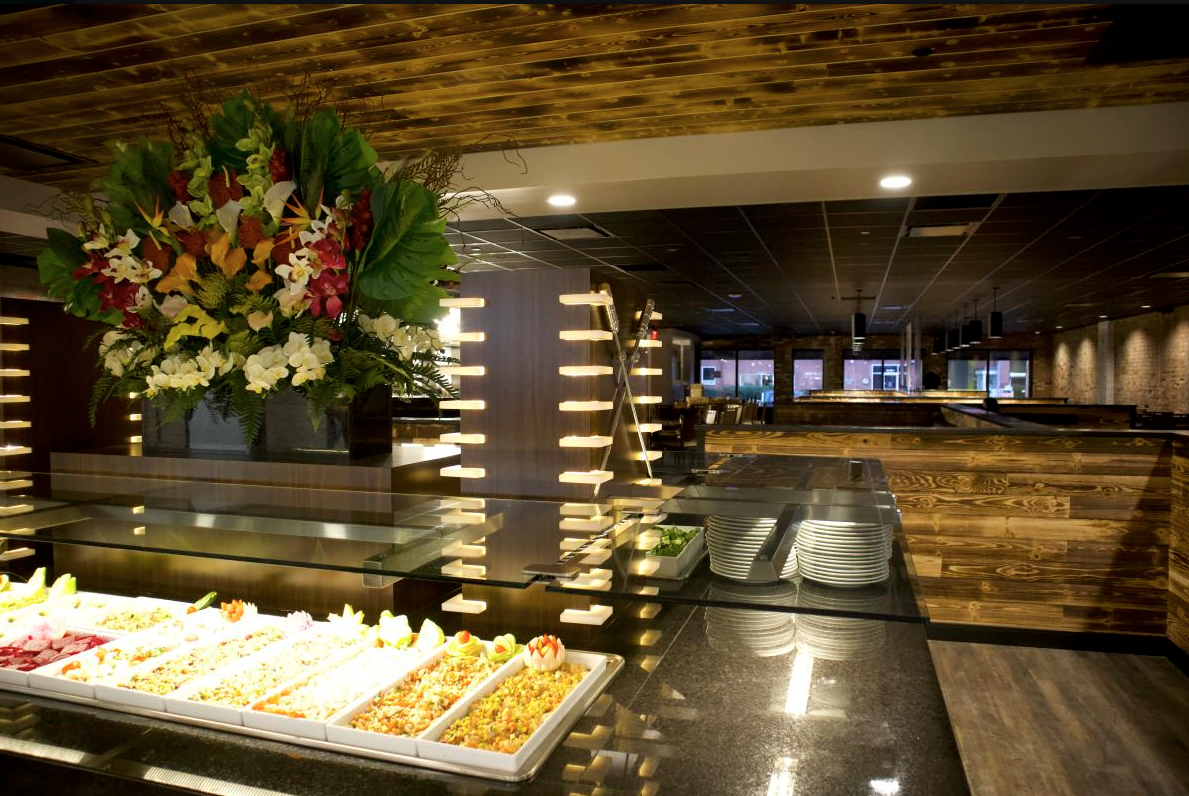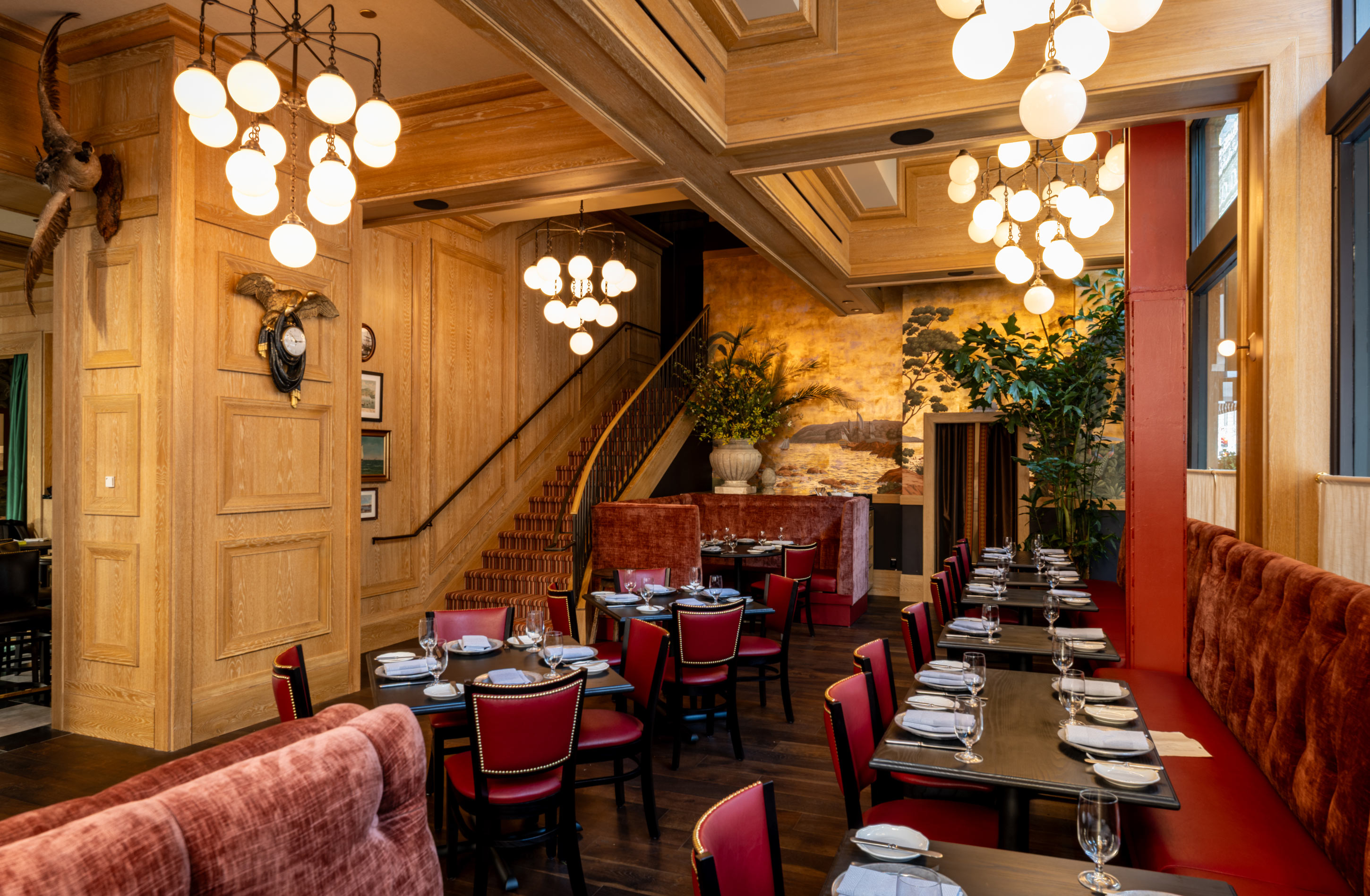
Picture this: It's 7:30 PM on a Friday night, your restaurant is packed, and the phone won't stop ringing. Your host is juggling walk-ins, managing the waitlist, and trying to answer reservation calls—all while maintaining that warm, welcoming demeanor your guests expect. Sound familiar?
The restaurant industry is experiencing a technological revolution that's changing how we handle guest communications. (Hostie AI Resources) Modern diners expect instant responses, 24/7 availability, and seamless booking experiences that traditional phone systems simply can't deliver. (Hostie AI Resources)
But here's where it gets interesting: AI hosts are now achieving accuracy rates of 95% or higher, while human front-of-house staff average around 78% accuracy in handling reservations and guest inquiries. (Hostie AI Resources) This isn't just about technology replacing humans—it's about understanding where each excels and how they can work together to create exceptional guest experiences.
Let's be honest about what's happening in restaurant front-of-house operations. Over two-thirds of Americans are willing to abandon restaurants that don't answer their phones. (Hostie AI Resources) That's a sobering statistic when you consider how often your staff might be too busy to pick up during peak hours.
The hospitality industry is facing unprecedented staffing challenges. Low pay, high stress, worker competition, and reluctance from those laid off during the pandemic to return, combined with poor working conditions, have led to a chronic shortage of entry-level staff in Canada's hospitality industry. (Hostie AI Blog) These same challenges exist across North America, making consistent, accurate guest communication increasingly difficult.
Artificial intelligence is making significant inroads into restaurant front-of-house operations. (Hostie AI Blog) Companies like Newo.ai, Slang, RestoHost, Hostie, Revmo, and PolyAI are not just managing bookings; they are engaging in natural conversations, handling multiple languages, and showcasing soft skills previously thought to be exclusive to humans. (Hostie AI Blog)
The numbers speak for themselves: AI is now an industry standard, with nearly 75% of consumers and 70% of foodservice operators at least somewhat familiar with it. (Datassential) More importantly, 57% of hospitality owners worldwide have adopted automation as a critical survival strategy. (Hostie AI Resources)
| Metric | AI Hosts | Human Hosts | Difference |
|---|---|---|---|
| Overall Accuracy | 95%+ | 78% | +17% |
| Peak Hour Performance | 95%+ | 65% | +30% |
| Multi-language Support | 100% | 25% | +75% |
| 24/7 Availability | 100% | 0% | +100% |
| Consistency | 100% | 60% | +40% |
These numbers come from analyzing over half a million recorded calls and extensive peak-hour testing. (Hostie AI Resources) The data reveals some fascinating insights about where AI excels and where humans still hold advantages.
Consistent Performance Under Pressure
Unlike human hosts who may become flustered during busy periods, AI systems maintain the same level of accuracy whether it's a quiet Tuesday afternoon or the busiest Saturday night of the year. Over 300,000 guest calls have been successfully managed by Hostie in the last year, demonstrating this consistency in real-world conditions. (Hostie AI Resources)
Elimination of Human Error Factors
AI hosts don't get tired, distracted, or overwhelmed. They don't mishear dates, forget to ask about dietary restrictions, or accidentally double-book tables. This systematic approach to guest communication eliminates many common sources of booking errors.
Instant Access to Information
While a human host might need to check availability, put a caller on hold, or ask a manager about special requests, AI systems have instant access to real-time reservation data, menu information, and restaurant policies.
Emotional Intelligence and Empathy
When a guest calls to complain about a disappointing meal or needs to make a last-minute change to accommodate a family emergency, human hosts can provide the emotional support and understanding that builds lasting relationships.
Complex Problem-Solving
Unusual requests, special occasions, or complicated group bookings often require the kind of creative thinking and judgment that humans excel at. A human host might suggest alternative solutions or work around constraints in ways that AI systems haven't been programmed to handle.
Building Personal Connections
Regular guests appreciate being recognized and remembered. While AI can store and recall guest preferences, the warmth of human recognition and personal conversation creates emotional connections that drive loyalty.
Flour + Water, a restaurant in San Francisco known for its handmade pasta and exceptional service, provides a perfect example of AI host effectiveness. (Hostie AI Blog) Using Hostie, they increased walk-ins by 13% within just one month. (Hostie AI Blog) Additionally, they saw a 20% increase in reservations. (Hostie AI Blog)
This success demonstrates how AI hosts can capture revenue opportunities that might otherwise be missed during busy periods or after-hours.
During peak dining hours (typically 6-9 PM on weekends), the accuracy gap between AI and human hosts widens significantly. Human accuracy drops to around 65% during these high-stress periods, while AI maintains its 95%+ accuracy rate. This difference translates directly to:
Modern AI hosts can enhance efficiency, personalization, and guest satisfaction by engaging in natural conversations across multiple languages, handling bookings without human intervention, remembering guest preferences and special occasions, managing waitlists dynamically, providing real-time updates on table availability, cross-selling special events and promotions, and addressing dietary restrictions and special requests. (Hostie AI Blog)
Hostie AI allows for streamlined integration with OpenTable reservations and Square POS system in under an hour. (Hostie AI Resources) This seamless integration ensures that AI hosts have access to real-time data, preventing double bookings and ensuring accurate availability information.
In multicultural cities like Toronto and Montreal, AI systems offer a distinct advantage with their multilingual capabilities, enabling smoother communication with diverse clientele and enhancing the overall customer experience. (Hostie AI Blog) This capability alone can significantly improve accuracy for restaurants serving diverse communities.
AI hosts are generating additional revenue of $3,000 to $18,000 per month per location, up to 25 times the cost of the AI host itself. (Hostie AI Blog) This revenue comes from:
The improved accuracy of AI hosts translates to significant cost savings:
The global food automation market is projected to reach $14 billion by the end of 2024. (Hostie AI Resources) There's a potential 69% increase in AI and robotics use in fast food restaurants by 2027. (Hostie AI Resources)
Contrary to fears of job displacement, many restaurants find that AI hosts complement human staff. By managing routine tasks, AI allows human hosts to focus on high-touch interactions, enhancing guest experiences and job satisfaction. (Hostie AI Blog)
Newo.ai allows restaurants to create their AI host in one click within minutes. The system can handle reservations directly and can be implemented in under an hour by feeding it the restaurant's menu, signature dishes, and reservation schedules. (Hostie AI Blog)
While some restaurant owners express skepticism—"I have enough trouble trying to train a human on how to respond to anything other than the simplest seating requests"—the reality is that AI systems require different but often simpler setup processes. (Hostie AI Blog)
AI assistants are already in use by early adopters, often without guests realizing it. (Hostie AI Blog) The key is implementing AI that sounds natural and provides helpful, accurate information.
Restaurants are rapidly becoming the last bastion of personal interaction in the retail space. (Hostie AI Blog) AI hosts handle routine tasks, freeing human staff to focus on creating memorable in-person experiences.
With 58% of people aged 18-38 more likely to return to restaurants that use automation, the investment in AI hosts often pays for itself within the first month through increased bookings and reduced errors. (Hostie AI Resources)
In just a couple of years, there will hardly be any business that hasn't hired an AI employee. (Hostie AI Blog) This prediction is already becoming reality as more restaurants recognize the competitive advantages of AI-powered guest communication.
AI technology continues to evolve rapidly. In the past two years, AI-driven solutions have become an essential tool for foodservice companies to stay competitive. (Datassential) Future developments will likely include even more sophisticated conversation abilities and deeper integration with restaurant operations.
88% of restaurant leaders feel the impact of high input costs, including direct materials and labor, despite slowing inflation. (Deloitte) These economic pressures make the accuracy and efficiency of AI hosts increasingly attractive to restaurant operators.
The accuracy showdown between AI hosts and human hosts reveals a clear winner in terms of consistency, availability, and error reduction. With AI hosts achieving 95%+ accuracy compared to human hosts' 78% average, the data strongly supports the integration of AI technology in restaurant operations. (Hostie AI Resources)
However, this isn't about replacement—it's about enhancement. The most successful restaurants will be those that leverage AI for routine tasks while empowering their human staff to focus on creating exceptional in-person experiences. (Hostie AI Blog)
As we move through 2025, the question isn't whether to adopt AI hosts, but how quickly you can implement them to stay competitive. The restaurants that embrace this technology now will have a significant advantage in guest satisfaction, operational efficiency, and revenue generation. (Hostie AI Blog)
The future of restaurant hospitality lies in the perfect blend of AI efficiency and human warmth. By understanding where each excels, restaurant owners can create guest experiences that are both flawlessly accurate and genuinely hospitable.
💡 Ready to see Hostie in action?
Don't miss another reservation or guest call.
👉 Book a demo with Hostie today
Based on analysis of over half a million recorded calls, AI hosts achieve 95%+ accuracy rates while human hosts average 78% accuracy. This 17+ percentage point difference becomes even more pronounced during peak hours when human hosts face increased stress and multitasking demands.
AI hosts maintain consistent 95%+ accuracy even during the busiest Friday and Saturday night rushes. Human hosts typically see their accuracy drop significantly during peak hours due to multitasking pressures, managing walk-ins, and handling multiple phone lines simultaneously.
Modern AI solutions like Hostie are generating an additional $3,000 to $18,000 per month per location, up to 25 times the cost of the AI host itself. This is achieved through reduced booking errors, 24/7 availability, and capturing calls that would otherwise go unanswered.
Hostie AI alone has successfully managed over 300,000 guest calls in the last year, demonstrating the scalability and reliability of AI-powered restaurant communication systems. This extensive real-world testing provides robust data on AI performance versus traditional human-operated systems.
According to industry research, 57% of hospitality owners worldwide have adopted automation as a critical survival strategy. Additionally, 58% of people aged 18-38 are more likely to return to restaurants that use automation, showing both operational and customer preference drivers.
Over two-thirds of Americans are willing to abandon restaurants that don't answer their phones, representing significant lost revenue. AI hosts solve this problem by providing 24/7 availability and instant response times, ensuring no potential customer is lost due to missed calls or busy signals.
RELATED


